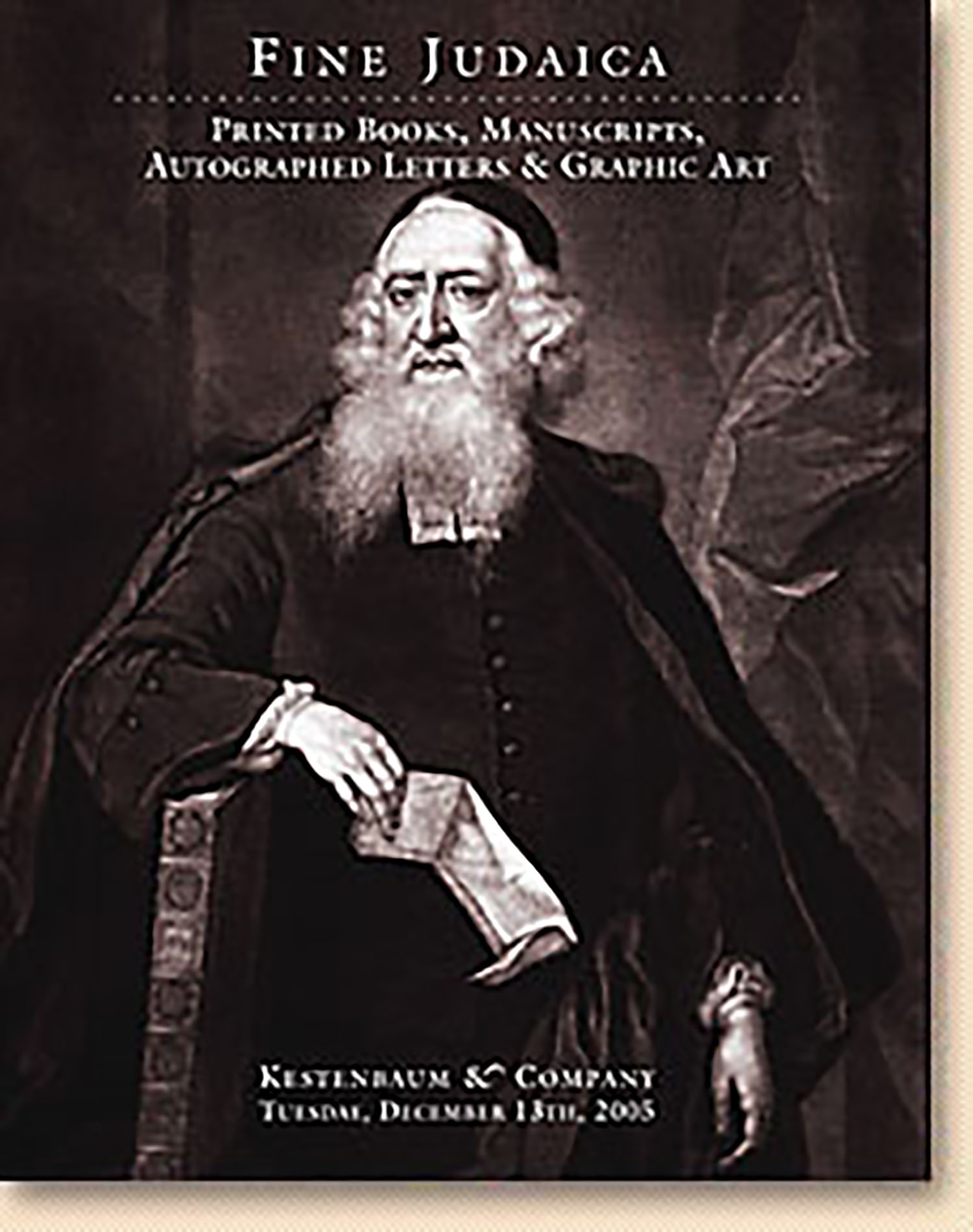Mordecai M. Noah. Travels in England, France, Spain, and the Barbary States, in the Years 1813-4 and 1815

AUCTION 31 |
Tuesday, December 13th,
2005 at 1:00
Fine Judaica: Hebrew and Other Printed Books
Lot 14
(AMERICAN JUDAICA)
Mordecai M. Noah. Travels in England, France, Spain, and the Barbary States, in the Years 1813-4 and 1815
New York and London: 1819
Est: $4,000 - $5,000
PRICE REALIZED $4,000
Noah was appointed American consul to Tunis in 1813. He was recalled two years later, in part because he mishandled a secret mission entrusted to him by the State Department. Upon returning to the United States, Noah was constantly assailed for improperly executing his duties and he spent much time and effort seeking to clear his name. This was among the motives for publishing his Travels: “This work, may, therefore, be considered as a work of explanation and defence, although my official affairs occupy but a small portion of it.”
Noah was particularly distressed that the official dispatch recalling him as consul cited his Jewish faith as the pretext (pp. 376-82, xxiv-xxvi). Even if this were the real motive, he wrote, “no official notice should have been taken of it; I could have been recalled without placing on file a letter, thus hostile to the spirit and character of our institutions.” To vindicate the reputation of American Jews, he included letters attesting to their virtues from Thomas Jefferson, James Madison and John Adams. Noah had in fact mismanaged diplomatic sensetivities, and his religion was stated as the pretext for his recall. “Still, by focusing on the Jewish aspects of his consularship and recall, Noah probably did the Jewish community a favor. The State Department never again openly cited religion as a factor in the selection of diplomats” (Sarna, 32).
Noah’s “Travels” was received well by contemporary critics, especially since, according to one reviewer, Noah was the first American to take advantage of the unique opportunities afforded a diplomat to compose such a comprehensive work about other lands. According to Sarna, the volume is also “still the best primary source on early nineteenth-century Tunisian Jewry.” See Sarna, Jacksonian Jew: The Two Worlds of Mordecai Noah, 15-32
